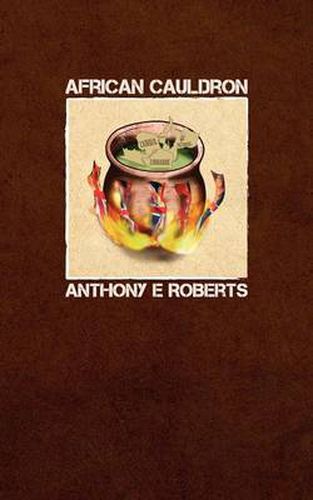Readings Newsletter
Become a Readings Member to make your shopping experience even easier.
Sign in or sign up for free!
You’re not far away from qualifying for FREE standard shipping within Australia
You’ve qualified for FREE standard shipping within Australia
The cart is loading…






This title is printed to order. This book may have been self-published. If so, we cannot guarantee the quality of the content. In the main most books will have gone through the editing process however some may not. We therefore suggest that you be aware of this before ordering this book. If in doubt check either the author or publisher’s details as we are unable to accept any returns unless they are faulty. Please contact us if you have any questions.
This fascinating analysis of post-colonial Africa takes the lid off the steaming cauldron of African politics, examining its links to British-based socialist and Marxist ideologies, and the tribalism and ‘talking-shop’ governance that characterise many African states today. The book also redresses the balance, unwrapping raw history from the politically correct clothing it has recently been given.
While Britain, the USA and the former USSR all come under the cosh, the author singles out British exploitation and clumsy power handovers in Rhodesia as particularly catastrophic. The LSE also gets a special mention as a seedbed of leftist ideas that have effectively stymied political and commercial progress in this part of Africa.
But what of the future? Here Anthony E Roberts explores long- established notions, such as qualified franchise, and looks back to the Central African Federation - with links to Mozambique and the South - as the basis for an African Renaissance and a way out of the mire of ‘egalitarian’ mediocrity and mendicant states.
Anthony E Roberts was born near Cape Town in 1937. He was educated at Hilton College and the University of Natal where he obtained his doctorate. He has worked in numerous Southern African countries in multiple disciplines from geologist to ventilation engineer, and also owned a small gold mine. He eventually retired as Chairman of the Institute of Mining Research at the University of Zimbabwe.
$9.00 standard shipping within Australia
FREE standard shipping within Australia for orders over $100.00
Express & International shipping calculated at checkout
This title is printed to order. This book may have been self-published. If so, we cannot guarantee the quality of the content. In the main most books will have gone through the editing process however some may not. We therefore suggest that you be aware of this before ordering this book. If in doubt check either the author or publisher’s details as we are unable to accept any returns unless they are faulty. Please contact us if you have any questions.
This fascinating analysis of post-colonial Africa takes the lid off the steaming cauldron of African politics, examining its links to British-based socialist and Marxist ideologies, and the tribalism and ‘talking-shop’ governance that characterise many African states today. The book also redresses the balance, unwrapping raw history from the politically correct clothing it has recently been given.
While Britain, the USA and the former USSR all come under the cosh, the author singles out British exploitation and clumsy power handovers in Rhodesia as particularly catastrophic. The LSE also gets a special mention as a seedbed of leftist ideas that have effectively stymied political and commercial progress in this part of Africa.
But what of the future? Here Anthony E Roberts explores long- established notions, such as qualified franchise, and looks back to the Central African Federation - with links to Mozambique and the South - as the basis for an African Renaissance and a way out of the mire of ‘egalitarian’ mediocrity and mendicant states.
Anthony E Roberts was born near Cape Town in 1937. He was educated at Hilton College and the University of Natal where he obtained his doctorate. He has worked in numerous Southern African countries in multiple disciplines from geologist to ventilation engineer, and also owned a small gold mine. He eventually retired as Chairman of the Institute of Mining Research at the University of Zimbabwe.